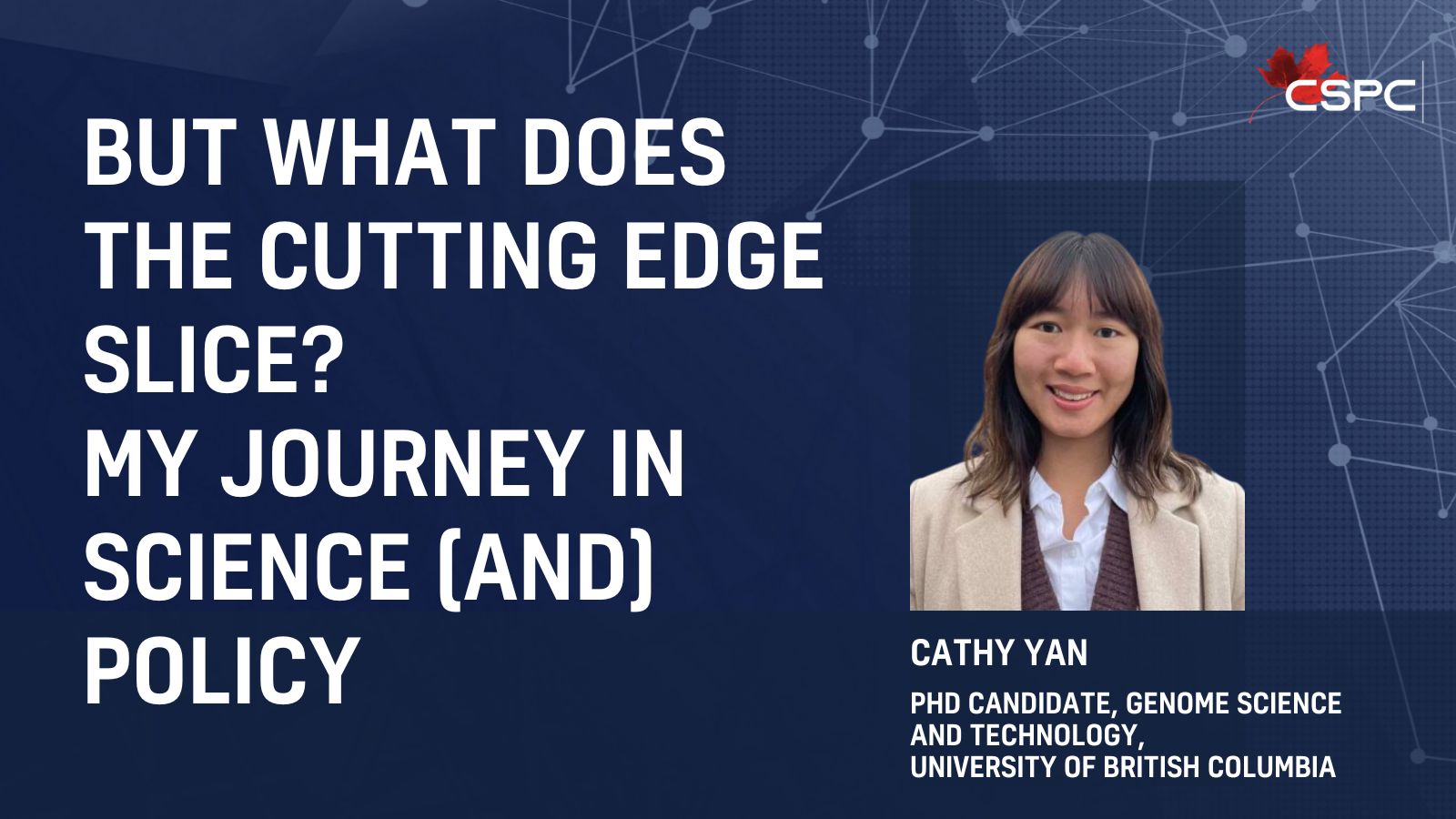But what does the cutting edge slice? My journey in science (and) policy

Author(s):
Cathy Yan
University of British Columbia
PHD Candidate, Genome Science and Technology
Disclaimer: The French version of this text has been auto-translated and has not been approved by the author.
When I started my PhD in Genome Science and Technology in 2021 during the pandemic, I didn’t have a clear vision of what I wanted to achieve, and struggled to find opportunities to explore career paths outside of academia. Professional development opportunities such as practicums or internships were uncommon for graduate students studying basic sciences, and while the ideas of community-engaged research and public scholarship were gaining prominence in the social and health sciences, they were (and are) still uncommon in my department.
It wasn’t until I got an advertisement for the Student to Business Network’s (S2BN) mentorship program that I heard the term “science policy” for the first time. The S2BN mentorship program matches STEM trainees with mentors in diverse sectors outside of academia. As a mentee, I was paired with Dr. Rob Annan, the President and CEO of Genome Canada. Rob’s story about how he leveraged his writing skills from his PhD in Biochemistry into a career in policy prompted me to reflect on the experiences and skills I hoped to accumulate during my PhD that could be transferable to careers outside of academia. His mentorship was what motivated me to find and volunteer with the Canadian Science Policy Center (CSPC).
When I started volunteering with the Programs Committee in 2023, I wasn’t sure what to expect. I had no experience or training in policy, and had only a surface-level understanding of how science and policy intersected. Despite my shortcomings, I found this opportunity to be deeply rewarding. Reading the panel proposals broadened and enriched my understanding of the most topical issues in science policy, and demonstrated to me that there was a large, diverse community of people in this space. Working with fellow volunteers also expanded my personal and professional networks. One volunteer that year, Dr. Megan Mahoney, actually altered my career trajectory! After eagerly replying to her email to all volunteers asking if anyone was interested in an internship with the National Advisory Committee on Immunization within the Public Health Agency of Canada, she connected me with the hiring manager. I was eventually offered the position, and continue to work there as a Federal Student Work Experience Program (FSWEP) student to this day.
Crucially, volunteering with CSPC also gave me the confidence to pursue other policy-related opportunities. When I first started exploring career paths, I felt uncomfortable as a trainee in basic research being surrounded by people with more relevant academic credentials. However, CSPC helped me hone transferable skills and frame my background as a strength. For example, learning how policymakers approach evidence and problems at the conference transformed how I advocated on climate issues to elected officials. Additionally, understanding how research is converted into action inspired me to initiate projects and lead workshops on civic engagement in my community.
Unsurprisingly, I returned as a volunteer in 2024, and am now a Co-chair of the Programs Committee for 2025. Every year, I feel privileged to be able to engage in national-level conversations critical to the future of Canada. Volunteering with CSPC has opened countless doors for me, introduced me to brilliant people from across the country, and made me a better student and community member. I hope to continue to be involved with this organization for as long as I am able.

